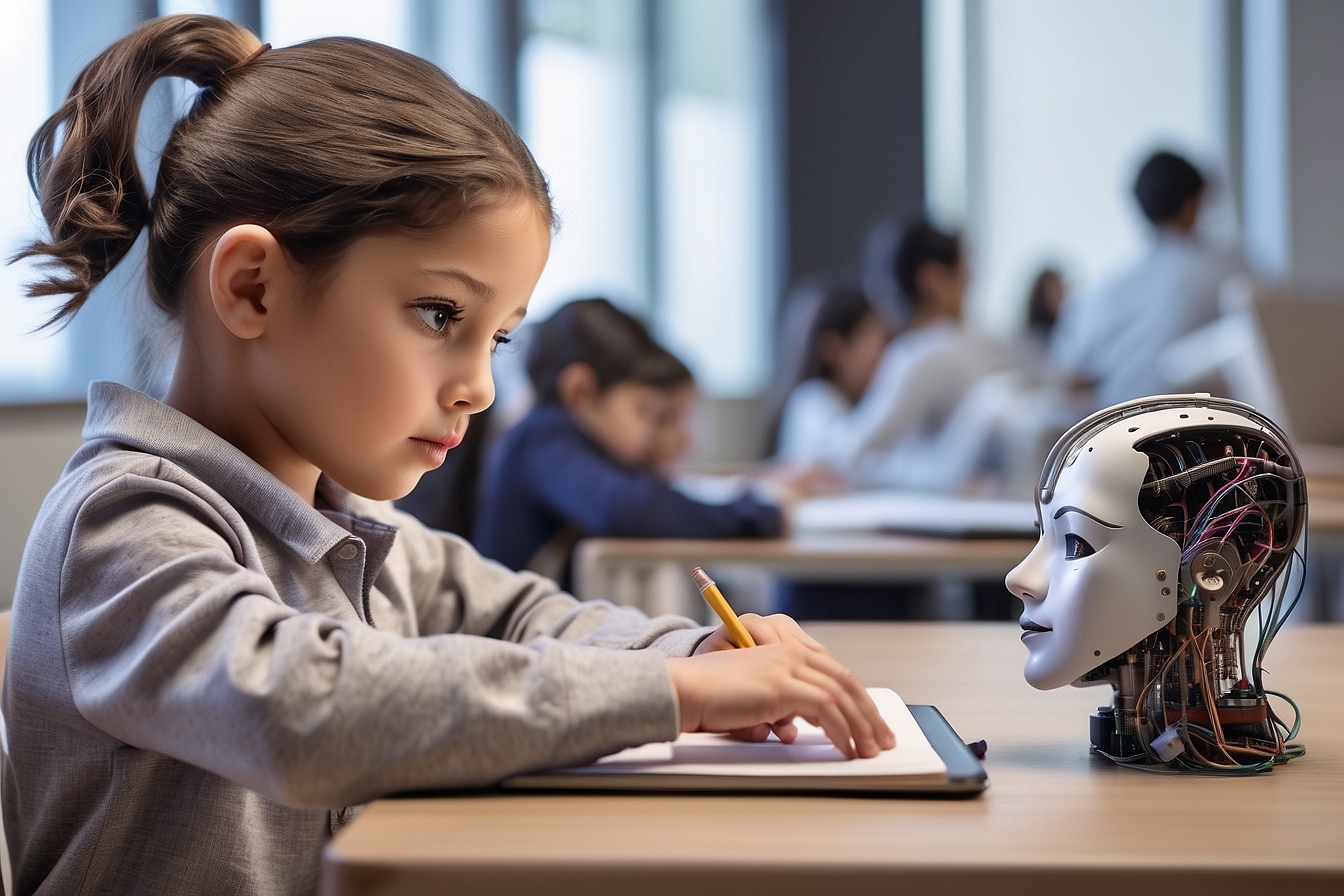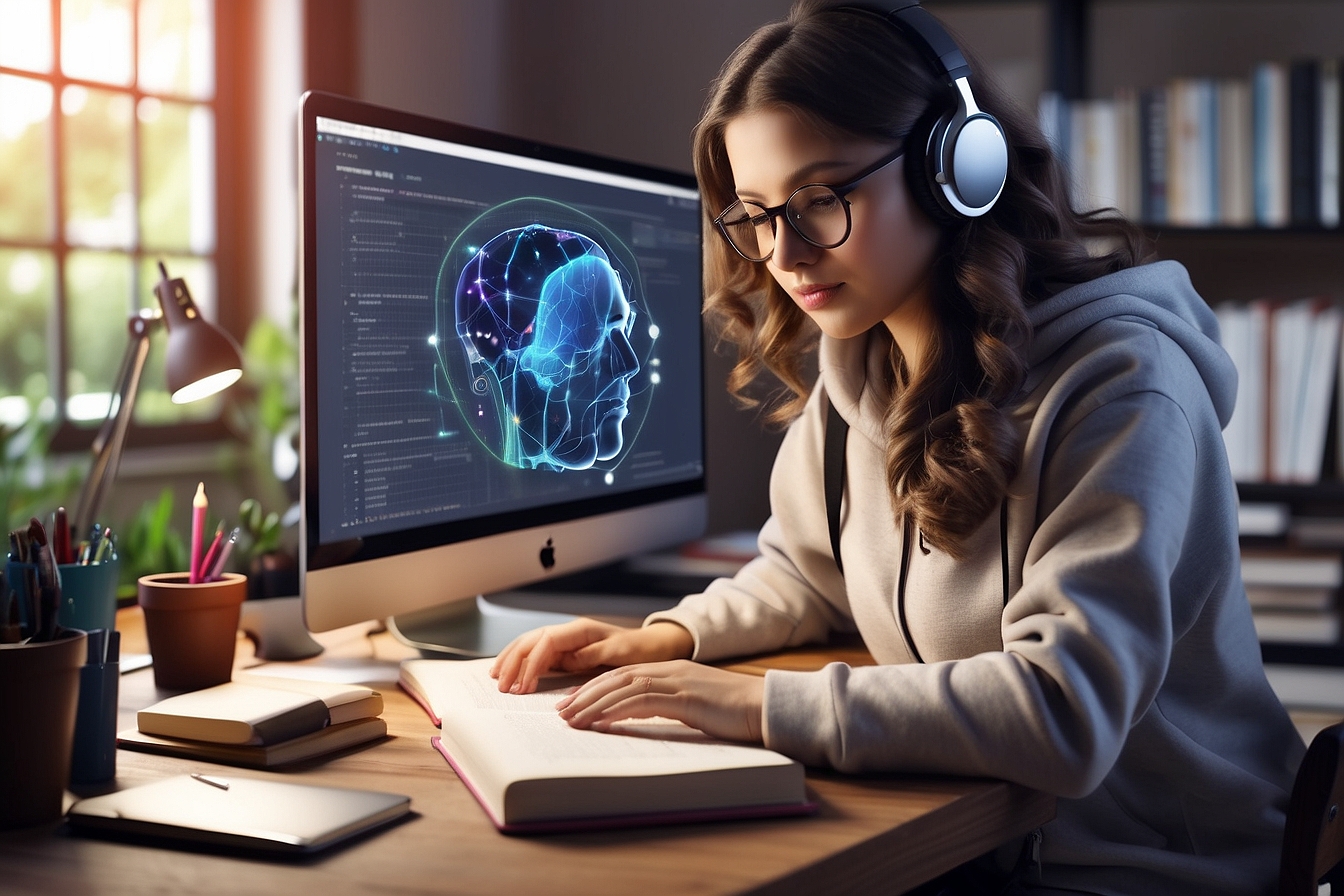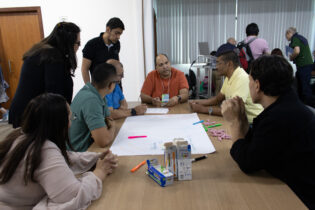Academic tutoring for university students from artificial intelligence (chatbot)
Published 7 February 2024

Photo by: AI Leonardo Diffusion
The power of artificial intelligence in academic tutoring of university students offers a new worldview of the educational scenario from learning to learn, which allows consolidation of educational activities based on the strategic use of ICT.
Mentoring has been a vital resource for college students for decades. Traditionally, tutors were people who provided academic support to students with reference to their needs, questions and guidance for the development of academic projects. However, with advances in artificial intelligence (AI), AI chatbots are emerging as a new form of tutoring in the university world, which is why we will analyze the anchor points of AIs to carry out associated academic tutoring to the vision of the teacher who ultimately validates the process.
Introduction to AI Chatbots in Tutoring
Tutoring has been an invaluable resource for college students for decades, where traditionally tutors were people who provided academic support to students. However, with advances in artificial intelligence (AI), AI chatbots are emerging as a new form of tutoring in the university world. There, AI chatbots are visualized as computer programs that use machine learning algorithms to interact with students and provide them with academic support. These chatbots can answer questions, offer detailed explanations, and guide students through complex problems. The main advantage of AI chatbots is that they are available 24/7, giving students immediate access to the help they need, where some of them already have an internet connection and allow have basic and contextualized answers to provide solid criteria when exercising tutoring.
The benefits of AI chatbots in university tutoring
Integrating AI chatbots into college tutoring offers a number of significant benefits. First, these chatbots can provide instant answers to students’ questions, allowing them to quickly advance their academic work. Additionally, AI chatbots can personalize each student’s learning experience, tailoring their responses and recommendations to each student’s individual needs. Another important benefit of AI chatbots is their ability to collect and analyze data on student performance. This allows tutors and teachers to identify learning patterns and common problem areas, which in turn can inform more effective teaching strategies. Additionally, AI chatbots can help students develop study skills and techniques that facilitate academic organization, providing them with useful reminders and tips.
AI Chatbots vs. Human Tutors: a comparison
While AI chatbots offer a number of advantages, it is important to recognize that they cannot completely replace human tutors. Human tutors have the ability to make emotional connections with students, providing them with additional support and motivation. Additionally, human tutors can adapt to individual students’ needs and provide a personalized approach to tutoring. On the other hand, AI chatbots have the advantage of constant availability and the ability to handle large volumes of simultaneous queries. This makes them a convenient and efficient option for students who need quick answers. Additionally, AI chatbots can store and access large amounts of information, allowing them to offer detailed explanations and additional resources.

The evolution of tutoring: from traditional tutoring to digital didactics
Tutoring has undergone a significant transformation in recent years, moving from a traditional approach to a more digital one, such traditional tutoring involved in-person meetings with a tutor, usually in a formal academic setting. However, with the advent of technology, tutoring has evolved towards a more digital approach that encourages ubiquity (Anytime, Anywhere Learning that breaks away from physical space). The introduction of AI chatbots into university tutoring is a prominent example of this evolution, where chatbots allow students to access tutoring more conveniently and flexibly, without the need to coordinate schedules or physical locations. Additionally, AI chatbot-based tutoring can be more scalable, meaning it can reach more students and provide support at scale.
How AI chatbots are revolutionizing the college experience
The incorporation of AI chatbots into the university experience is having a significant impact on the way students approach learning and tutoring. These chatbots are providing students with immediate access to resources and academic support from a referencing subject to the students’ needs, allowing them to solve problems more efficiently and advance their work. Additionally, AI chatbots are helping students develop problem-solving and critical thinking skills by providing immediate feedback and detailed explanations. This allows them to learn how to learn autonomously and strengthen their confidence in their ability to meet academic challenges.
Interaction with AI chatbots is also improving the learning experience of students by providing them with an interactive and personalized learning environment, as chatbots can adapt to the individual preferences and needs of each student, allowing them to learn in a more personalized way more effective and efficient with a basic context.
Case Studies: Universities Implementing AI Chatbots in Tutoring
Several universities around the world have started implementing AI chatbots in their Tutoring programs to improve the learning experience of students. A prominent example is Stanford University, which has developed an AI chatbot called “Stanley” to provide academic support to its students. “Stanley” can answer questions related to a wide range of topics, from mathematics to social sciences. Additionally, you can provide students with additional resources, such as sample problems and recommended reading materials. Another notable case study is the University of Michigan, which has implemented an AI chatbot called “Maize” in its online tutoring program. “Maize” helps students find answers to frequently asked questions and provides personalized advice to improve their academic performance.
The future of AI chatbots in tutoring: advances and possible challenges
As technology continues to advance, artificial intelligence in university tutoring is expected to evolve and improve further with different amalgamations and nuances ranging from the creation of generative, textual and audiovisual content, which positively impacts the learning of students. AI chatbots are then expected to be able to understand and answer more complex questions, as well as offer more personalized and detailed advice.
However, there are also potential challenges associated with implementing AI chatbots in tutoring. For example, plagiarism, privacy, and data security may be a concern as AI chatbots collect and store students’ personal information. Additionally, some students may prefer human interaction and may find it difficult to rely on a computer program to provide academic support.
Resources for students interested in AI chatbots in tutoring
If you are a student interested in exploring the use of AI chatbots in tutoring, there are a number of resources available to help you on your academic journey. Many universities offer online tutoring programs that use AI chatbots, and there are also online platforms that provide access to AI chatbots on a wide variety of subjects. Additionally, you can find additional resources on AI chatbots in tutoring through academic research and specialized articles in scientific journals, where these resources can provide you with up-to-date information on advances in AI chatbot technology and its application in college tutoring.
The role of information technology in the future of tutoring
Information technology will play a crucial role in the future of university tutoring, as Artificial intelligence, in particular, will continue to drive the evolution of many aspects of education, including the topic of tutoring by improving the experience. of student learning. It is there, that the integration of AI chatbots in University Tutoring is just the beginning of what information technology can offer and in the future, we may see advances in areas, such as virtual and augmented reality, which could provide even more immersive and personalized learning environments.

Conclusion: the transformative power of AI chatbots in university education
AI chatbots are changing the way college students approach tutoring and learning. These computer programs are providing students with immediate access to academic resources and support, personalizing their learning experience and improving their ability to solve problems efficiently. While AI chatbots cannot completely replace human tutors, they offer a number of significant advantages. As technology continues to advance, AI chatbots in college tutoring are expected to evolve and improve even further, providing students with an even richer learning experience. If you are a student interested in harnessing the transformative power of AI chatbots in your academic journey, I encourage you to explore the resources and programs available at your university and online. AI chatbots represent the future of college tutoring and can be an invaluable tool for your academic success. Take advantage of this opportunity and discover how AI chatbots can empower you in your academic journey!
Insight: If you are interested in learning more about the use of AI chatbots in College Tutoring, I invite you to visit our website, where you will find additional resources and online tutoring programs that use this technology. Don’t miss the opportunity to harness the transformative power of AI chatbots in your university education!



